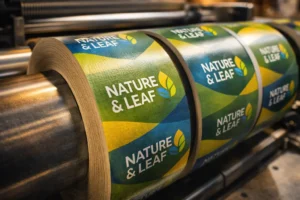Unilever is a British multinational consumer goods company and one of the world’s most influential FMCG (Fast-Moving Consumer Goods) corporations. Headquartered in London, UK, and Rotterdam, Netherlands (until 2020), Unilever operates in 190+ countries, touching the lives of 2.5 billion people every day. With a vast portfolio of 400+ brands, Unilever’s products span the categories of nutrition, hygiene, home care, and personal care.
1. Historical Background
1.1 Founding & Evolution
- Founded: September 2, 1929
- Merger of: Margarine Unie (Netherlands) and Lever Brothers (UK)
- Purpose: To combine resources and production of soaps and margarine—two products dependent on palm oil.
1.2 Key Milestones
- 1930s–1950s: Expansion in Europe and the US with soap, margarine, and food businesses
- 1970s: Entry into emerging markets like India, Africa, and Latin America
- 2000s: Portfolio restructuring—divesting non-core brands
- 2020s: Emphasis on sustainability, digital transformation, and plant-based products
2. Product Portfolio
Unilever’s vast product offerings are categorized under:
2.1 Nutrition
- Brands: Knorr, Hellmann’s, Brooke Bond, Lipton, Marmite
- Key Focus: Plant-based food, low salt/sugar innovations
2.2 Ice Cream
- Brands: Magnum, Ben & Jerry’s, Cornetto, Wall’s
- Current Status: Announced spin-off in 2025 for independent listing
2.3 Beauty & Personal Care
- Brands: Dove, Sunsilk, TRESemmé, Axe, Lifebuoy, Lux, Pond’s
- Sustainability: Refillable, plastic-free packaging for several lines
2.4 Home Care
- Brands: Surf, Domestos, Comfort, Cif, Vim
- Innovation: Eco-friendly cleaning solutions and smart home hygiene
3. Business Model
3.1 B2C (Business to Consumer)
- Primary Channel: Retail chains, supermarkets, and direct-to-consumer platforms
3.2 D2C (Direct to Consumer)
- Initiatives: Unilever-owned platforms and brand websites for subscription-based models
3.3 Sustainability as a Core Pillar
- Goal to achieve net-zero emissions by 2039
- Reducing plastic use and increasing recycled packaging
- Ethical sourcing for palm oil and tea
4. Global Presence and Strategy
4.1 Market Coverage
- Operations in: 190+ countries
- Top Markets: India, USA, Brazil, UK, Indonesia
4.2 Key Strategic Markets
- India: Focus of future growth; GDP per capita expected to double by 2033
- Africa: Rising middle class and urbanization make it a long-term bet
- Latin America: Targeting recovery post-economic slowdowns
4.3 Localization Strategy
- Tailors products to local tastes, customs, and price sensitivities
- Leverages local production and sourcing
5. Financial Performance
5.1 Revenue Trends
- FY2024 Revenue: €60.8 billion
- Underlying Sales Growth: 4.2%
- Growth Drivers:
- 5.3% growth in “Power Brands”
- 2.9% volume-led growth
5.2 Profitability
- Operating margin maintained despite inflationary pressures
- Ice cream spin-off expected to boost operating efficiency
6. Key Strategic Moves (2023–2025)
6.1 Brand Portfolio Optimization
- Divesting low-margin brands
- Pruning food brands worth £1 billion in revenue
- Prioritizing high-growth and premium segments
6.2 Ice Cream Business Spin-off
- Aim: Independent listing by end of 2025
- Reason: Allows sharper strategic focus on core categories
6.3 Acquisition of Wild Deodorant
- Natural, refillable deodorant company acquired for £100 million
- Aligned with Unilever’s sustainability and premiumization goals
7. Competitive Analysis
| Company | Strengths |
| Procter & Gamble | Leading in personal care and hygiene, strong US presence |
| Nestlé | Nutrition and health focus, deep food R&D capabilities |
| L’Oréal | Strong in cosmetics and skincare, luxury brand strength |
| Colgate-Palmolive | Oral care dominance, household product innovation |
8. Challenges and Risk Factors
8.1 Inflation & Supply Chain Disruptions
- Rising raw material and logistics costs
- Currency fluctuations impacting profit margins
8.2 Consumer Preferences Shifts
- Shift towards natural, organic, and sustainable products
- Growing demand for vegan and plant-based alternatives
8.3 Market-Specific Risks
- Regulatory scrutiny in emerging markets
- Political instability and operational complexity
9. Future Outlook
9.1 Strategic Priorities
- Double Down on India as a core growth engine
- Digital Transformation: AI-driven demand forecasting, D2C tech stack
- Innovation Pipeline: New product launches aligned with health and wellness trends
9.2 ESG & Sustainability
- 100% recyclable, reusable, or compostable packaging by 2030
- Net-zero operations and climate-positive roadmap
10. Conclusion
Unilever stands as a global leader in the consumer goods industry, backed by decades of strategic evolution, robust brand equity, and a deep commitment to sustainability. Its focus on core brand strength, emerging market growth, and eco-conscious innovation positions it as a formidable force for the future.
As it prepares for a new chapter with a leaner portfolio and a sharper focus post-ice cream spin-off, Unilever is well-poised to continue its global leadership in the FMCG space.








3 Responses
Just finished reading the blog—really insightful! Unilever’s strategy makes a lot of sense, especially the decision to spin off the ice cream division. It feels like they’re really narrowing their focus to drive stronger growth. I’m curious to see how this move will shape their future in the FMCG space.
Totally agree! Unilever’s move to spin off the ice cream division seems like a smart play to streamline operations and sharpen their focus. It’ll be interesting to watch how this strategy unfolds long-term!